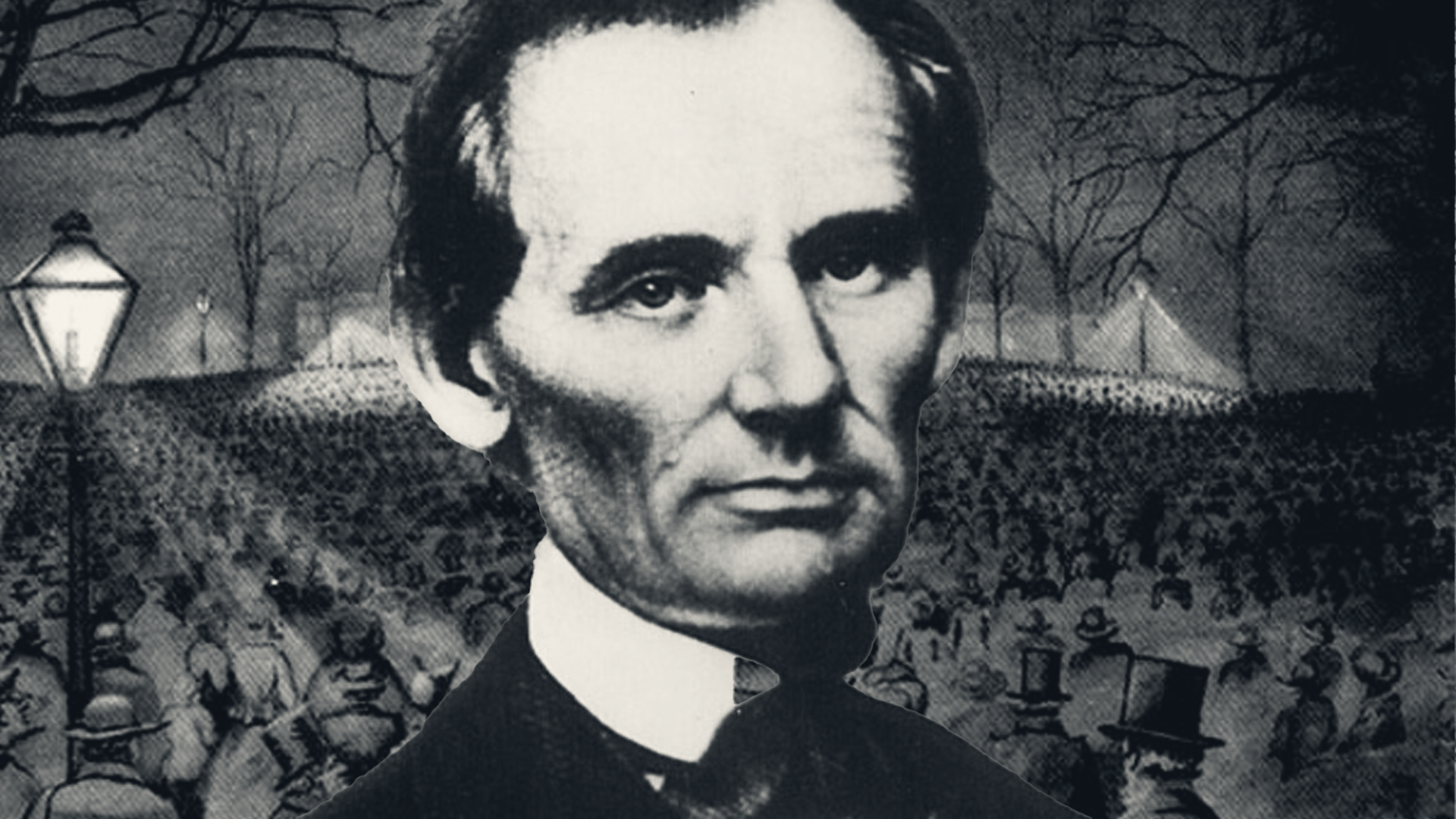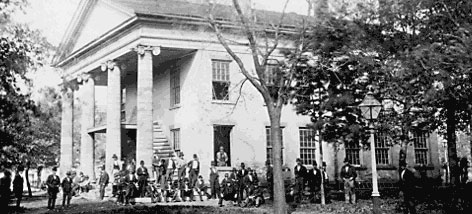Abraham Lincoln Speaks Out Against Slavery

In Peoria, Illinois, Abraham Lincoln took the microphone and did more than give a speech, he drew a moral line.
What Happened?
The Kansas–Nebraska Act (1854) said people in two new territories could decide for themselves whether to allow slavery, a policy called “popular sovereignty.” Lincoln believed this erased earlier compromises that tried to limit slavery’s spread and keep the nation stable.
At Peoria on October 16, 1854, Lincoln explained that America had a long pattern, through the Northwest Ordinance, the Missouri Compromise, and other laws—of containing slavery rather than spreading it. The Act, he argued, broke that pattern and invited conflict.
Lincoln used clear moral language for a young nation to grasp: if enslaved people are human beings, then “all men are created equal” must apply to them, too. That means no one has a moral right to own another person.
He challenged the idea that a vote alone could make slavery acceptable. For Lincoln, majority rule mattered—but not when it violated basic human rights. In a democracy, freedom and equality set the rules for what majorities can decide.
Some said climate and geography would keep slavery out of Kansas and Nebraska. Lincoln answered with facts: when slavery is legal, it expands; when it’s illegal, it shrinks. Laws shape real lives, not just maps.
Lincoln focused on stopping slavery’s expansion, not ending it everywhere at once. He believed containing it would place it “in the course of ultimate extinction,” reducing the risk of immediate civil war while still honoring American principles.
Peoria also showed Lincoln’s method: history plus morality. He quoted the Founders, traced past laws, and then asked the simple question kids can ask, too—Is it fair? If not, why should we allow it to grow?
Newspapers noticed. An “obscure” Illinois lawyer became a national figure who could explain big ideas in everyday words. The Peoria Speech helped lead to the Lincoln–Douglas debates, a presidential run in 1860, and eventually the end of American slavery.
Why It Matters
Lincoln’s Peoria Speech teaches that democracy is more than voting; it’s voting guided by values. By insisting that human rights set limits on what laws can do, Lincoln connected the nation’s founding promise to the lives of real people. His stand against expanding slavery helped steer the country toward a more faithful version of “all men are created equal.”
?
What did the Kansas–Nebraska Act change about how new territories decided on slavery?
Why did Lincoln say some choices can’t be left to a simple vote?
How did earlier laws like the Northwest Ordinance and Missouri Compromise try to limit slavery?
Why did Lincoln focus on stopping slavery’s spread instead of ending it everywhere immediately?
How can history and morality work together to guide decisions in a democracy?
Dig Deeper
Get a crash course on the causes and consequences of the Kansas-Nebraska Act of 1854 with historian Matthew Pinsker.
You may think that things are heated in Washington today, but the Kansas-Nebraska Act of 1854 had members of Congress so angry they pulled out their weapons -- and formed the Republican Party. The issues? Slavery and states' rights, which led the divided nation straight into the Civil War. Ben Labaree, Jr. explains how Abraham Lincoln's party emerged amidst the madness.
Related

The Emancipation Proclamation & The 13th Amendment
Freedom on paper is one thing; freedom in practice is another. The Emancipation Proclamation and the 13th Amendment were giant leaps toward liberty—yet the road ahead for formerly enslaved people was long and uneven.

Westward Expansion, Sectionalism, and the Road to Civil War
Manifest Destiny fueled territorial growth, but it also deepened sectional divides—turning political disagreements over slavery and states’ rights into irreconcilable conflicts that led to civil war.

Life and Society in the Colonial Carolinas
Explore the rise of plantation agriculture, slavery, class divisions, and the shaping of daily life in the colonial South—particularly in North Carolina and South Carolina.
Further Reading
Stay curious!
